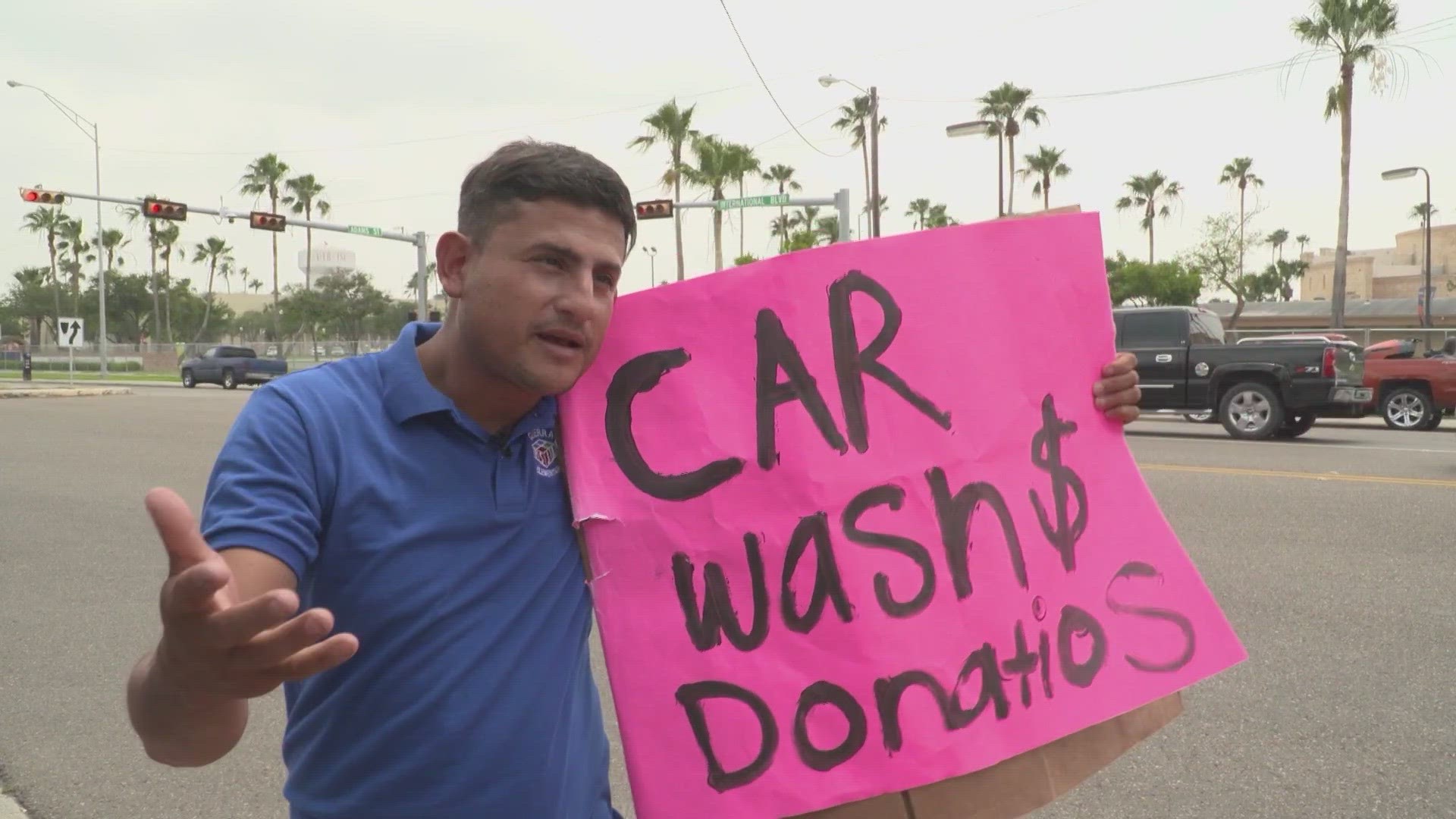BROWNSVILLE, Texas — The end of Title 42 arrived at 10:59 p.m. CST on Thursday.
Homeland Security spent much of the week warning about tougher consequences for anyone crossing the border illegally starting at 11 p.m.
Leaders in borders counties, meanwhile, are issuing disaster declarations, following a tip they received about a potential migrant surge.
“I have received credible information from officials with Customs and Border Protection that large groups of migrants are probing our international border in search of crossing points,” said Hidalgo County Judge Richard Cortez. “I have decided to declare this emergency as a first step in securing all available state and federal resources to ensure the health and safety of our residents.”
Shortly after midday Thursday, Cameron County Judge Eddie Treviño joined in, making the declaration "in response to the imminent threat of widespread severe damage, injury, or loss of life or property resulting from the Border Security Disaster."
What this means is both county leaders are securing as many state and federal resources as they can to protect their communities. Both disaster declarations will remain in effect for seven days and must be renewed by their respective commissioners courts.

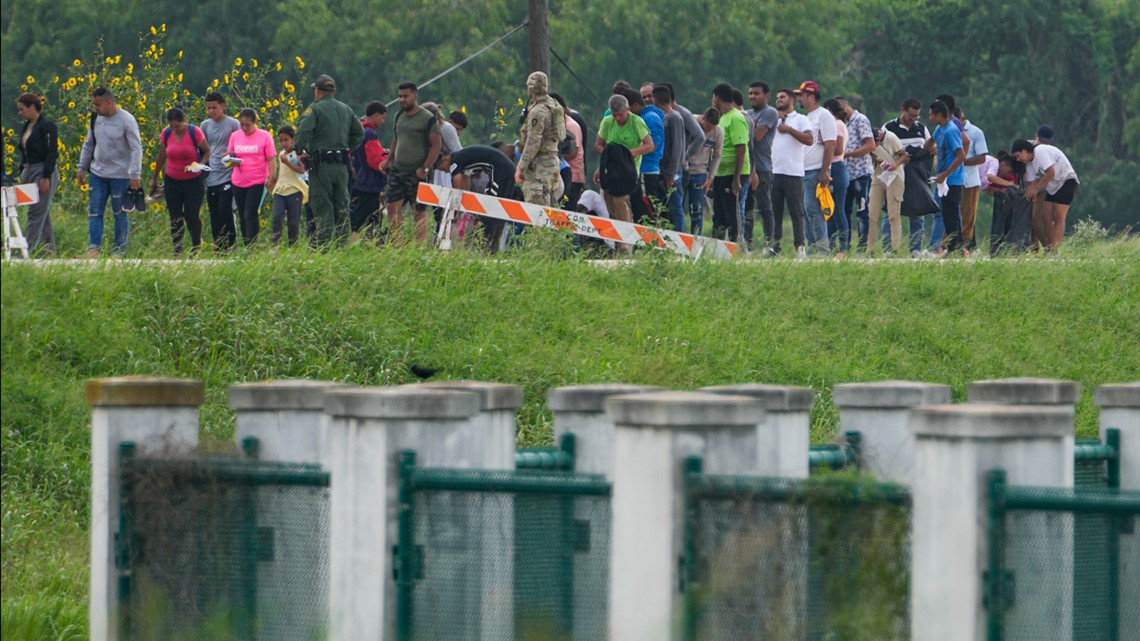
"We're all kind of drifting into the unknown," Treviño said. "What we've been trying to do is prepare as best we can."
If a wave of people try to rush across the border, he says, authorities are prepared.
"Last week here at Gateway (International Bridge), we had a practice run in the event there's an attempt to overrun Gateway. We want to be ready for that," he explained.
Treviño assures this is nothing new to the southernmost county in the United States. His community, he says, is in a familiar situation.
"There are surges of groups of migrants, we have seen that for many, many years... it's the reality of life here on the border," he said. "There's this mistaken belief that the border is not secure. It is."

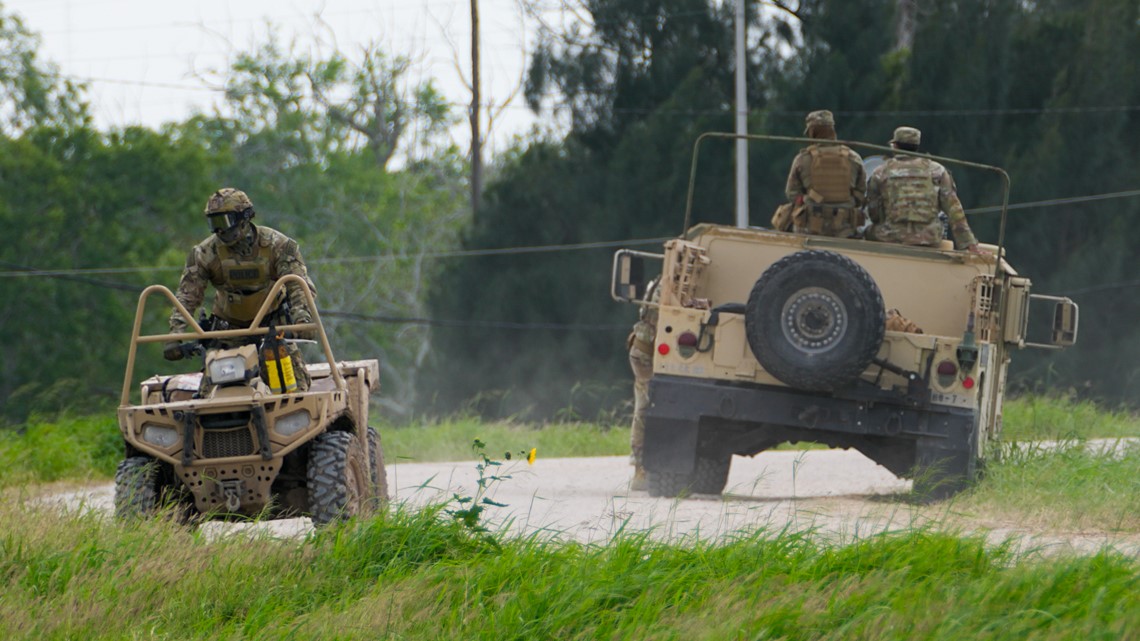
'We've gotta get to work'
On Wednesday night, Treviño sat in a room full of local authorities planning for each and every scenario that could become reality—including a rush across the border.
"There's been talk that people would do that. If it happens, the bridges would have to be closed. That's not good for commercial trade. That's the other part of the equation that doesn't get talked about," he added.
Treviño, who said the county operates three ports of entry in Cameron County, believes this month's heightened level of security only highlights the need for comprehensive immigration reform.
"If you keep hitting your head against the wall hoping your head is gonna go away, that's a form of insanity. It's not gonna work. Kicking the can down the road for over 40 years hasn't worked," said Treviño. "We've gotta get to work. We've gotta do something."

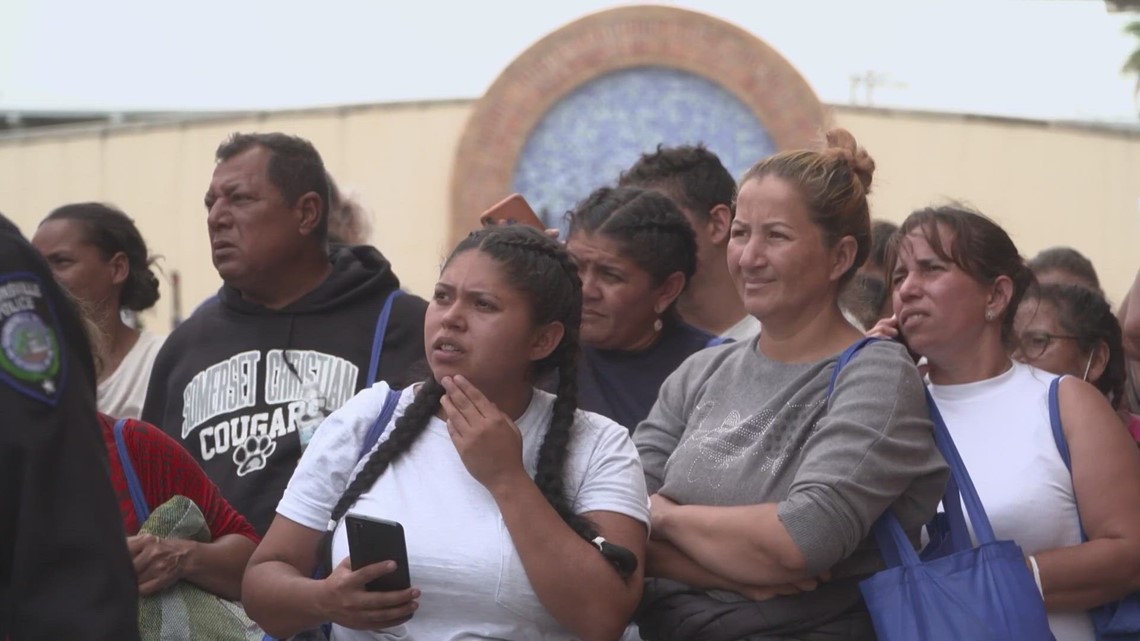
Just outside the Gateway Bridge, we met Venezuelans offering a car wash for a donation. Most of them crossed into the U.S. penniless, and had to think of ways to earn money to pay for their plane or bus tickets.
Darguin Ruben Molina stood outside a Valero gas station with a sign that read, "Car wash! Donations!"
"We're raising money," said Molina. "It's me and my wife, and plane tickets are more expensive. Thanks to everyone's help, we were able to buy them."
Having been able to collect the money he needed by washing between 20 and 30 cars a day, he remained on the corner until it was time for his flight so he could raise money for others.
"I want to help other Venezuelans get the same opportunity to get their ticket to where they need to go," said Molina. "Venezuelans who came without basic necessities, who fought their way through the jungle to get here."
Extended stays
Local authorities say that, as of Thursday, migrants who secured their tickets are spending more time in Brownsville, due to booked buses and flights out of town. While people would traditionally have to spend a day or two on the border before they'd leave, now they are staying for three or more days.
"We're warning everybody that they're here legally, but they don't have too much to do," said Treviño.
While some people are able to make their way to their next destination, others are purposely changing their ticket to a few days later.
"I'm still here waiting for my family," said Griselda Martinez.

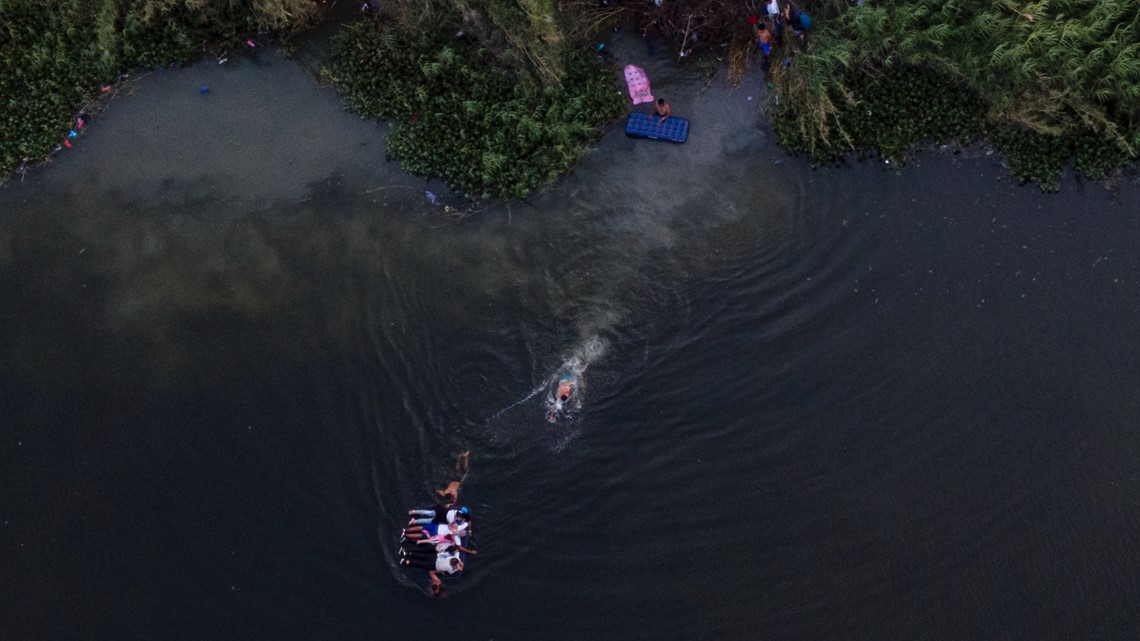
KENS 5 interviewed Martinez on Wednesday afternoon at the bus station in downtown Brownsville.
She, like so many others, were waiting for the rest of their family who got separated from them on the U.S. side of the border.
A Venezuelan father who did not wish to share his name arrived in Brownsville separately from his family. He said U.S. authorities are separating families, but didn't give a reason why.
That father explained how he didn't know where his 9-year-old son was—whether it be in Matamoros or in Brownsville. He spent Thursday walking through downtown Brownville, looking for some way to call his son so he knew he was safe.
Martinez, who arrived separate from the other 10 members of her family, has only been reunited with one of her daughters.
Holding onto faith, Martinez is praying that her husband, her other daughter and her grandchildren will step off the bus before Friday.
"I'm praying for the hearts of those who are processing them," she said. "We'll keep waiting. With God's glory, they'll get here."

